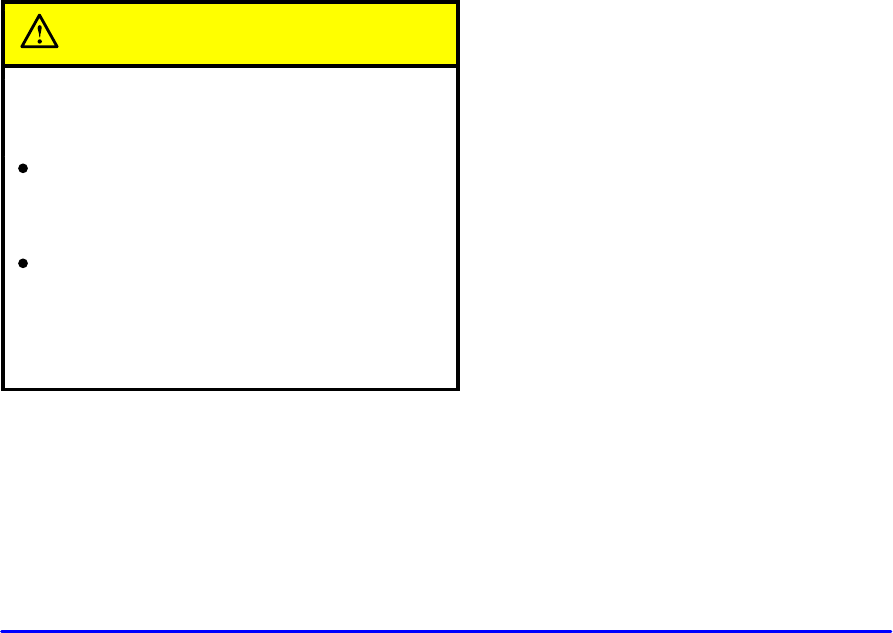
6-3
CAUTION:
You can be injured and your vehicle could be
damaged if you try to do service work on a
vehicle without knowing enough about it.
Be sure you have sufficient knowledge,
experience, the proper replacement parts
and tools before you attempt any vehicle
maintenance task.
Be sure to use the proper nuts, bolts and
other fasteners. “English” and “metric”
fasteners can be easily confused. If you use
the wrong fasteners, parts can later break
or fall off. You could be hurt.
Adding Equipment to the Outside of
Your Vehicle
Things you might add to the outside of your vehicle can
affect the airflow around it. This may cause wind noise
and affect windshield washer performance. Check with
your dealer before adding equipment to the outside of
your vehicle.
Fuel
The 8th digit of your vehicle identification number
(VIN) shows the code letter for your engine. You will
find the VIN at the top left of your instrument panel.
See “Vehicle Identification Number” in the Index.
If you have the 3100 V6 engine (VIN Code J) or
3800 V6 engine (VIN Code K), use regular unleaded
gasoline rated at 87 octane or higher. If you’re using fuel
rated at the recommended octane or higher and you hear
heavy knocking, your engine needs service. But don’t
worry if you hear a little pinging noise when you’re
accelerating or driving up a hill. That’s normal, and
you don’t have to buy a higher octane fuel to get rid
of pinging. It’s the heavy, constant knock that means
you have a problem.
If you have the 3800 Supercharged V6 engine
(VIN Code 1), use premium unleaded gasoline rated
at 91 octane or higher. With the 3800 Supercharged
engine, in an emergency, you may be able to use a lower
octane
-- as low as 87 -- if heavy knocking does
not occur. If you are using 91 or higher octane unleaded
gasoline and you hear heavy knocking, your engine
needs service.


















